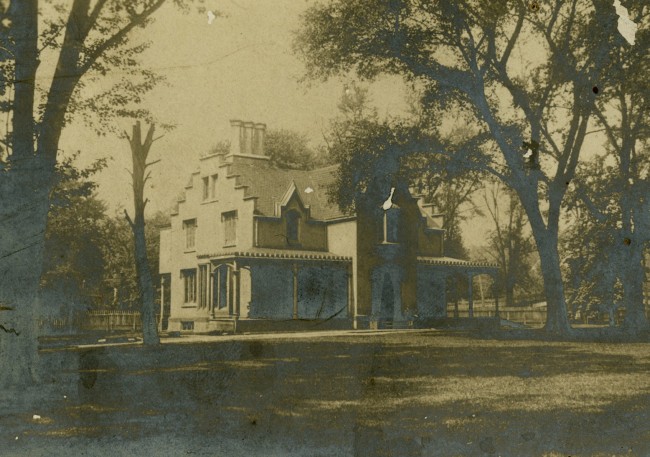“As a woman, I have inclined to the social side of life, and have endeavored to record the changes which time has made among the people in their homes and at the fireside.”
– Gertrude Lefferts Vanderbilt, preface to her book A Social History of Flatbush, 1881.
Gertrude Lefferts was born in 1824 to John Lefferts (1785-1829) and Maria Lott Lefferts (1786-1865). Her father died when she was only five years old. In descriptions of her childhood, Gertrude recalled being surrounded by strong and intelligent women. She described her grandmother Femmetie Hegeman Lefferts as “a woman of great intelligence and a constant reader,” who conversed fluently in Dutch and English. Gertrude was particularly close with her mother, Maria Lott Lefferts. She recalled being “very proud of mother, for she attracted attention by her stately manner wherever she appeared.” Gertrude inherited both women’s love of history books, and pursued her interests as a student at .
In 1846, Gertrude Lefferts married Judge John Vanderbilt, a member of another prominent Dutch family in Flatbush, and moved across the street from her childhood home, the family’s Flatbush homestead. Her son, Leffert, nicknamed “Leff,” was born in 1848. Gertrude outlived both her husband and son: John died in 1877 after suffering from a chronic illness, and Leff died suddenly in 1895.
Over the course of her life, Gertrude involved herself extensively in charity work. In 1858, for example, she formed the Society for the Amelioration of the Colored Population of Flatbush, an organization dedicated to raising money for the education of the town’s African American community. Yet Gertrude also expressed a condescending racism towards those she sought to help. “The African race,” she wrote in the 1890s, “are not a treacherous people; on the contrary they are guileless and simpleminded, gentle and kindly in their feelings and grateful for sympathy offered them.”
Perhaps inspired by the interests of her mother and grandmother, Gertrude became an avid chronicler of the history of Flatbush and Brooklyn. The Social History of Flatbush, her most celebrated book, was published in 1881. Gertrude received praise for the book’s bright and descriptive prose and its rich depiction of the everyday experiences of generations of Dutch men and women living in Kings County. In the preface to the book, Gertrude insisted that her sex only improved her abilities as a “social historian,” allowing her to reinterpret past events “from a different standpoint.” Indeed, Gertrude Lefferts Vanderbilt is an important and overlooked predecessor of the pioneering women historians of the twentieth century.


